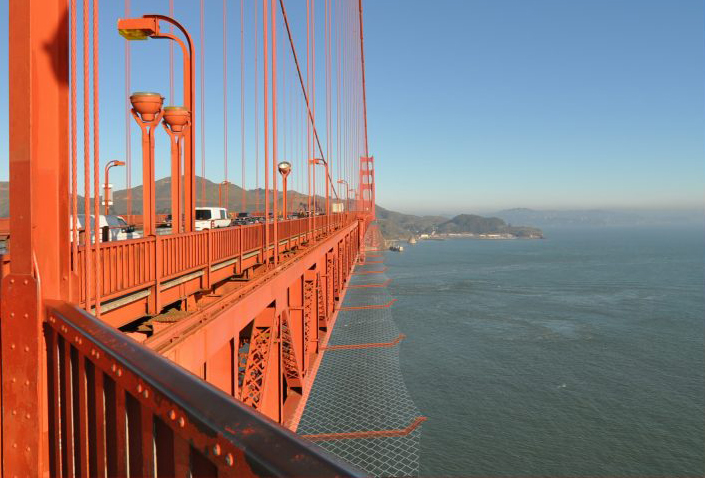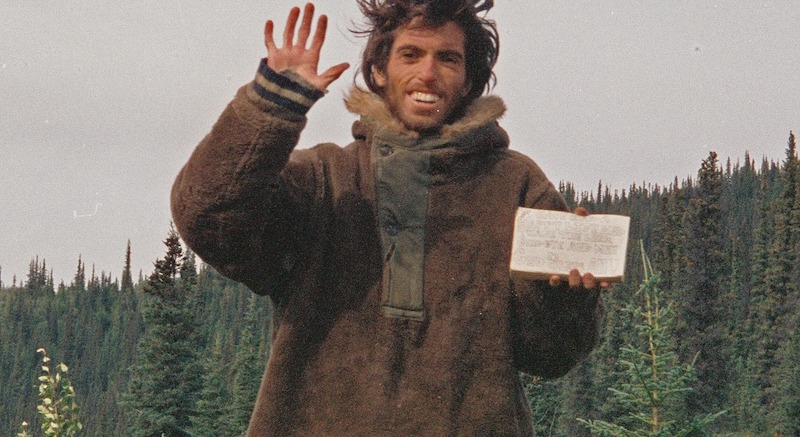“If anyone tells you that a certain person speaks ill of you, do not make excuses about what is said of you but answer, ‘He was ignorant of my other faults, else he would have not mentioned these alone.’”
~Epictetus
Greetings from LA and Hawaii.
This week we learned about coupling, found some [mostly] unbiased new outlets, read about a case of deadly wanderlust, listened to a 19-minute podcast about why comparison is futile, and recited the serenity prayer. Our challenge is for you to recite the serenity prayer every morning this week.
Coupling/Displacement

Every other week for the last few decades, someone has walked partway across the Golden Gate Bridge in San Francisco, paused, and then jumped to their death. The unofficial count in 2012 was that 1,600 people had jumped since the bridge was built. Just in August of 2013, 10 people jumped to their death.
This has become such a problem that the city is now spending upwards of $198 million to put a suicide barrier on the bridge (pictured above).
You could be forgiven for asking why — won’t those people just find other ways to commit suicide? Is it really worth $198 million?
That’s an idea called displacement. In Malcolm Gladwell’s words, “The assumption that people would simply switch to another method is called displacement. Displacement assumes that when people think of doing something as serious as committing suicide, they are very hard to stop. Blocking one option isn’t going to make much difference.”
In Talking With Strangers, however, Gladwell argues for a different idea…
“The alternative possibility is that suicide is a behavior coupled to a particular context. Coupling is the idea that behaviors are linked to very specific circumstances and conditions.”
“Sure enough, this is exactly what seems to be the case, according to a very clever bit of detective work by psychologist Richard Seiden. Seiden followed up to 515 people who had tried to jump from the bridge between 1937 and 1971, but had been unexpectedly restrained. Just 25 of those 515 persisted in killing themselves some other way. Overwhelmingly, the people who want to jump off the Golden Gate Bridge at a given moment want to jump off the Golden Gate Bridge only at that given moment.”
On a personal level, it’s a reminder of how influential our environment is on our behaviors — not just as it pertains to suicide, but as it pertains to all of the things we do (or don’t do) on a given day.
From a higher level, it’s a reminder that society’s actions are at least partly determined by the environment our society has created, and we should work to create environments that benefit ourselves and others as much as it’s in our power.
Unbiased News
Getting unbiased news is a difficult task and, to some degree, it’s impossible. But it’d benefit all of us to take a break from blatantly biased new sources — CNN and/or Fox News, for instance — and support outlets that do their best to tell the truth. Here are a few that we recommend checking out/subscribing to…
- The Wall Street Journal
- NPR News
- Newsweek
- Reuters
- USA Today
- Real Clear Politics
- BBC
- Independent Journal Review
Deadly Wanderlust

Into The Wild by John Krakauer is a thoughtful and melancholy book. It documents Chris McCandless’ 1992 journey into Alaska wilderness that ultimately ended in the young man’s death. Above is the final picture that McCandless took of himself before he laid down to die in an abandoned bus that had served as his base camp for several months. Krakauer tells McCandless’ story and explores themes such as the allure of nature in a fast-paced, high-tech world.
We know this is an older book, but it’s excellent and we highly recommend reading it if you haven’t already.
The Loser’s Game: Comparison
On episode 480 of the SPI (Smart Passive Income) podcast, Pat Flynn spends 19 minutes musing about what he calls “the entrepreneurial game that no one ever wins.” Namely, comparison. He argues (rightly so, we think) that comparing ourselves to others is not a fair game — each person has a different history, a different personality, and has had different opportunities placed before them. “Nothing good can come out of that,” he says, “You either are going to feel bad because you don’t have or you’re not at where someone else is or you’re just kind of tooting your own horn, playing I’m better than you to somebody else… or you’re exactly the same, in which case you’ve just wasted your time.”
Give the full episode a listen during your next drive — it’s a good reminder that the only comparison worth making is the one between you right now and you yesterday.
The Serenity Prayer
You’ve likely said this prayer before, but it’s worth repeating today (whether you’re religious or not):
God, grant me the serenity to accept the things I cannot change,
courage to change the things I can,
and wisdom to know the difference.
Extra Stuff
Here’s some articles that caught our attention this week…
Alphonse Bertillon and the Troubling Pursuit of Human Metrics by The MIT Press Reader
How to Be Great? Just Be Good, Repeatably by Steph Smith
Medieval Britain’s Cancer Rates Were Ten Times Higher Than Previously Thought by Smithsonian
The Weekly Challenge
For this week’s challenge, repeat the serenity prayer above every morning this week. Spend a few moments thinking about the words and let it serve as a reminder to control what you can and to accept what you can’t.
Until next week!
Mike & Alec
